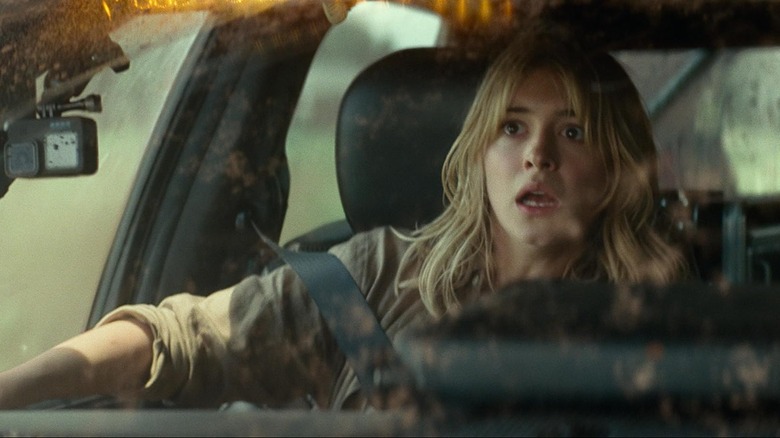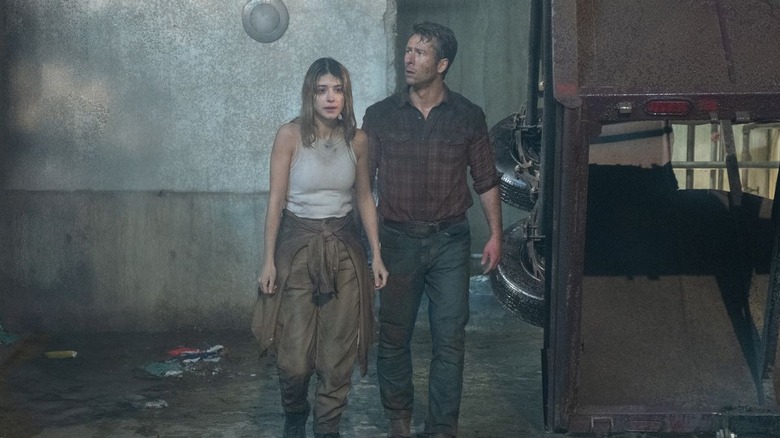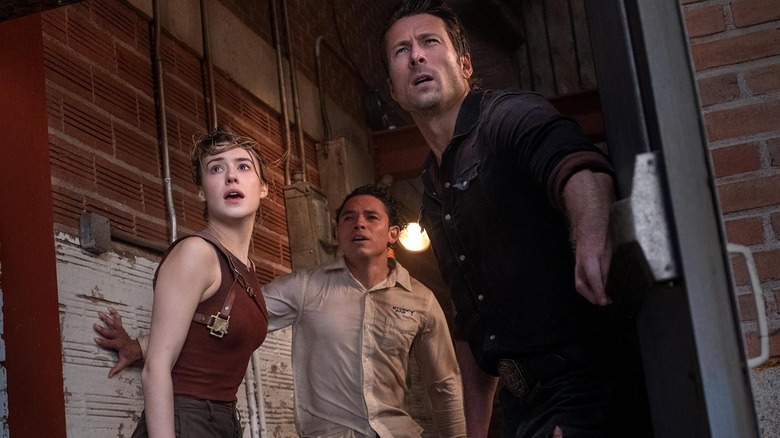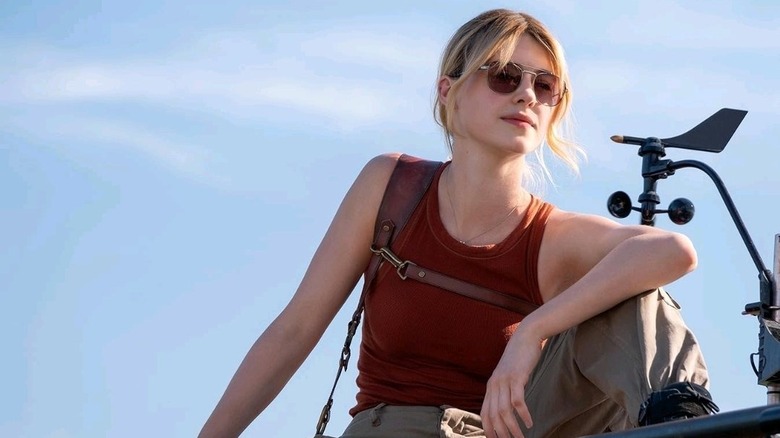Twisters Director Was Afraid To Take The Job, But That Fear Lit A Fire Under Him [Exclusive]
A movie is, if you'll bear with me, not dissimilar from a twister: It typically isn't just made up of one thing. A film can contain a multitude of disparate genres, themes, tones, and elements inside of itself. This shouldn't be surprising, given that cinema is, at its core, a reflection of the human experience, and human beings are fascinatingly diverse creatures.
The business part of show business tends to forget that last point often, if only because films are easier to sell when reduced to a single aspect — and, frankly, so are people. Ultimately, typecasting does artists a disservice, as it did when director Lee Isaac Chung was announced to helm the follow-up to Jan de Bont's 1996 "Twister," cheekily titled "Twisters." While Chung's attachment to the sequel seemed like another instance of an indie filmmaker leaving personal projects behind to make a blockbuster, such typecasting implies that a movie about storm chasers in the expanding area known as "Tornado Alley" couldn't be personal.
In fact, it turns out "Twisters" is just as personal to Chung as his prior film, "Minari," given that the director grew up in Arkansas and was well aware of what it's like to live within the path of nature at its most destructive. I was lucky enough to speak to Chung about how he was able to so effectively capture nature in the movie, what classic films inspired him when staging the film's romance plot, and why he had to overcome his fears in order to make "Twisters."
This interview has been lightly edited for clarity and brevity.
Showing the effects and the power of nature
Ironically enough, I drove past a tornado when I was in my youth growing up in Michigan.
Oh, you did?
So I know how tornadoes can come and confront you suddenly, just like that. One of the things that struck me so much about the film is the way that you portray the power of nature. In fact, one of my favorite shots is when Kate sees that waft of air go through the wheat field. So I was wondering if you could talk about how you decided to depict nature as a force in this movie. How did you get that shot?
I was constantly just looking for ways to show not just the tornadoes, but the effects of the tornadoes and storms. And often those are rendered within the details in the space in an environment. That particular shot was a wheat field, an actual wheat field that we used, but we couldn't get the wind to actually do that. So that is actually CGI that's helping us with that visual play of the wheat. But there are some other shots where we really had a helicopter go through different wheat fields and we were using some of that as the effects of the way that the wind works.
That moment where inside of her mind she's seeing a tornado, a cloud that's forming, and we go through a wheat field and we go up to the sky, for instance — that was stuff that we were getting with our aerial shots and footage.
So yeah, on the side of this movie, a side project within it, was almost like a documentary of just trying to capture weather events and nature and the beauty of nature. We even had this actual storm chaser, Sean Casey, who was going out and filming supercells and storms, hail, things like that for us. So it was a fun process of working. Very few films I feel offer that kind of opportunity to work and nerd out and geek out about something natural.
Yeah. And it's our world, so it's just so beautiful to see.
Exactly.
Howard Hawks and Frank Capra films influenced the romance in Twisters
The other side of this film that I really responded to is the romance angle and how charming it is. It brought me back to not just Hallmark movies, but also movies of the '30s and '40s, screwball comedies even. Was there a particular cinematic template that you had in mind for the central dynamic of Kate and Tyler and Javi?
Yeah, yeah. You mentioned the 1930s films, and that's something that I was definitely watching a lot. I was looking at a lot of screwball stuff like Howard Hawks and seeing the way — Capra as well — looking at the way they would tell their stories of various characters and their relationships changing, ultimately to come to the ending that happens in this movie. I kind of give a nod to the rom-com with the airport and that's all intentional, just to let the ending have a cheeky sort of nod to that genre.
Chung faced his fears making Twisters
So much of this movie is about facing your fears. What would you say for yourself as a filmmaker was the biggest fear going into this? And did you overcome it, do you think?
I wondered if I could do this or not, or if I would be consumed, and I wondered if it was ... it was a little bit like Kate going into that tornado, and the more that I feared it, the more that I would channel it into the work and into the story, into elements of the story, and I just went into it.
At the very beginning when I was considering whether I should do this project or not, I felt very much afraid and I let that be the reason to drive me to do it. Because I felt like if I go into it because I'm scared, it's going to change me in some way. And I wanted that. I wanted to experience that journey personally.
So now I'm at the other side of it and I hope this film will do all right and that people will enjoy it, and that's where I will feel much relief.
"Twisters" is in theaters now.



